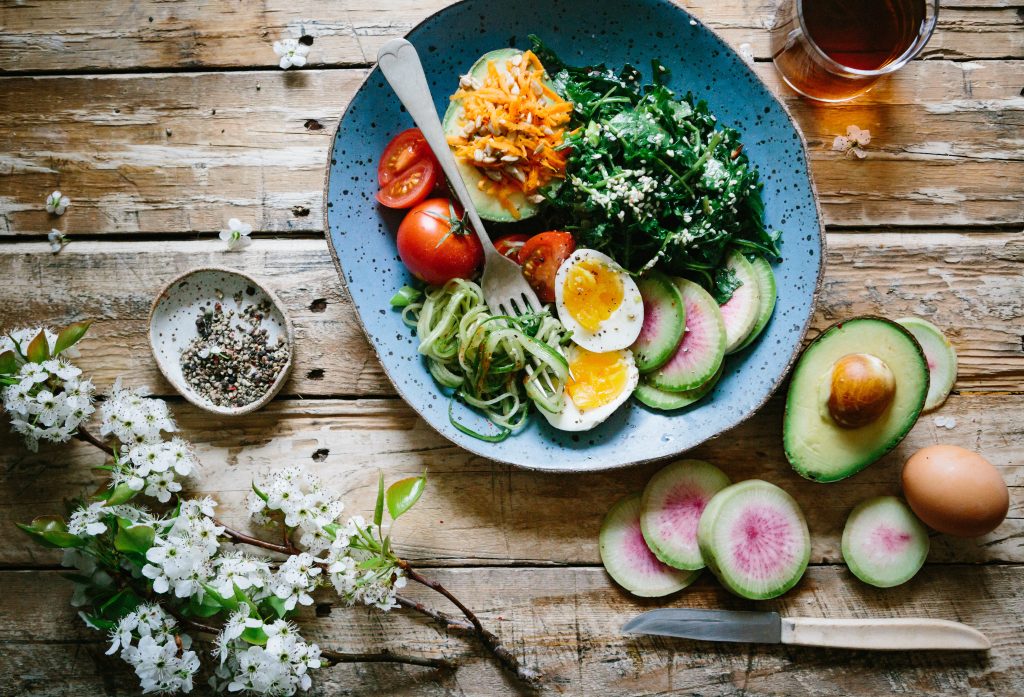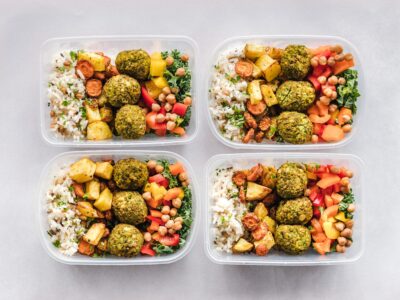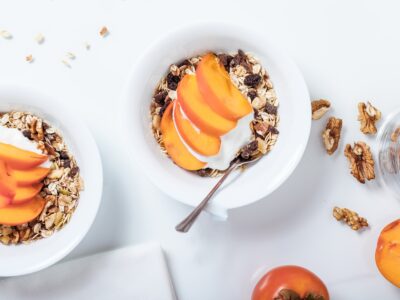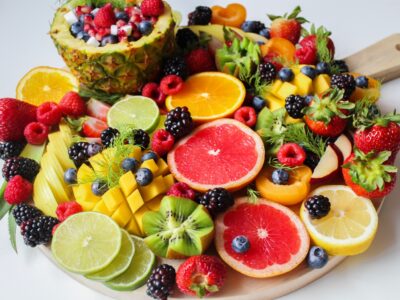You likely know the importance of exercise for muscle gain but what about the role that diet plays?
If you’re eating the right foods, your muscles will recover more quickly from your workouts and you’ll find it easier to gain muscle. Everything you eat is a golden opportunity to support muscle growth and recovery.
But on the flip side, the “wrong” type of nutrition can be hugely detrimental to building muscle. It’s physically impossible to build muscle if you’re not taking in the right nutrients, no matter how much training you do!
The Impact Of Training
Firstly, let’s talk about what happens when you train for muscle gain. Lifting weights leads to an increase in protein synthesis and protein breakdown.
This balance is called protein turnover and it’s crucial for building muscle. Ideally, you need protein synthesis to exceed protein breakdown so that you’re building more muscle than is being broken down. Weight training encourages protein breakdown and muscle loss so it’s absolutely crucial to rebalance this through your diet.
When you’re combining training with the right nutrition, you can build and maintain lean muscle mass. They work together to support muscle gain.
The Trick To Eating To Build Muscle
Technically, you can build muscle through nutrition alone, although there’s a limit as to how much protein synthesis can occur and how much muscle you’ll ultimately gain. You can’t ignore the nutrition side of things when you’re looking to gain muscle.
Protein is your best friend here. Protein is made up of amino acids, which helps build muscle. When you combine weight training with high-quality protein, you’ll see far less protein breakdown. This is known as “positive protein balance” and it’s the zone you need to be in for building muscle.
It’s not just a case of eating as much protein as possible, though. Eating more protein than your body can use to build muscle means you’ll gain weight as fat rather than muscle.
But it’s not just about the amount of protein you eat. How you distribute it throughout the day is crucial too – not too much or too little for protein synthesis.
Spreading your protein intake into three even portions has been shown in studies to improve lean muscle mass, especially when compared to two uneven larger portions. Researchers have linked this to the superior protein synthesis in the former scenario.
Splitting your protein intake into 3-5 meals can help optimise protein synthesis. This helps your body to build muscle more efficiently compared to skewing your protein intake into one or two bigger portions.
Muscle Building Foods
Confused about which ones are good foods for bulking? If you’re eating to gain muscle, you need to be smart about your diet. We’ve already mentioned the importance of protein, especially high-quality sources such as eggs, Greek yoghurt, lean beef, chicken and fish. Plant protein doesn’t score as highly but that doesn’t mean it can’t form part of a diet aimed around muscle gain. Soybeans and beans can be great protein sources if you’re vegetarian or plant-based.
Unsaturated fats are another smart move. Think olive oil, nuts and fatty fish – all of which can help you ensure you gain muscle rather than fat.
Building Muscle In a Calorie Deficit
When you’re looking to gain muscle, it’s usually recommended that you aim for a calorie surplus rather than a calorie deficit. Because you’re consuming more calories by eating this way, it’s easy to gain fat as well as muscle unless you’re super smart with your diet.
Alternating between being in a calorie surplus followed by a short period of being in a calorie deficit can prime your body to gain muscle rather than fat. Aim for three months in a calorie surplus and then one month in a calorie deficit (rinse and repeat).
Paying equal attention to exercise and diet can help you build muscle and maintain it. Don’t neglect either area as they work in harmony. If you’re not sure how best to balance your protein intake, a qualified nutritionist can help you optimise your nutrition for muscle gain.





